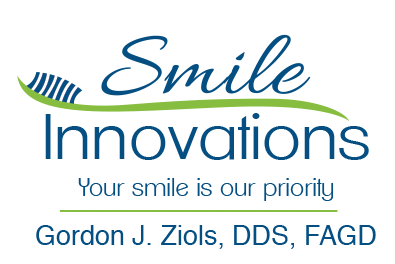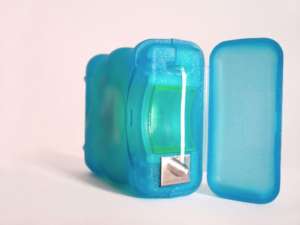Dentist 60630
 Did you know that tooth decay is the single largest cause of school absences? The longer decay goes untreated, the worse it gets. Not only can this mean costlier expenses for you, but it also jeopardizes your child’s oral health and education. You can help your child have a healthy, happy smile by taking a few steps to defend against tooth decay. Here are three steps you can take at home.
Did you know that tooth decay is the single largest cause of school absences? The longer decay goes untreated, the worse it gets. Not only can this mean costlier expenses for you, but it also jeopardizes your child’s oral health and education. You can help your child have a healthy, happy smile by taking a few steps to defend against tooth decay. Here are three steps you can take at home.
Reduce Excessive Sugar
Sugary foods feed the bacteria that cause tooth decay. Limit your child’s sugary intake by keeping candy, soft drinks, juices, and other sweets to a minimum. If your child does indulge in a sugary snack or treat, make sure they brush their teeth afterwards.
Follow a Consistent Brushing Routine
One of the best steps you can take for your child is to help them establish a daily brushing routine. They should brush for at least two minutes both morning and night. Try brushing at the same times each day so that it becomes a habit. We also strongly recommend that parents monitor their children to make sure they are brushing correctly and safely. It’s important that children avoid swallowing toothpaste or mouthwash.
Strengthen Teeth with Dairy Products
Dairy products are excellent sources of calcium, particularly cheese, yogurt, and milk. Calcium helps to build strong bones and teeth. Increasing the amount of calcium in your child’s diet can help strengthen tooth enamel, one of the natural defenses against decay. If your child is lactose intolerant or cannot consume other dairy products, we suggest you talk to our team for additional solutions.
Healthy teeth start at home. Implement the three simple steps above with your child at home to ensure they have a happy, healthy smile. The single most important step you can take for your child is to bring them in to see our team. Regular oral health examinations for your child are essential to ensure that their teeth are healthy and growing properly.
Contact our team to schedule your child’s next examination today.
Smile Innovations of Chicago
5399 N. Milwaukee Ave.
Chicago, IL 60630
(773) 763-7755


 Loose teeth, bad breath, and painful, bloody gums – these are among the signs and symptoms of periodontal, or gum, disease. Unfortunately, periodontal disease can also begin without any obvious symptoms. If left undiagnosed or untreated, you could be at risk for irreparable damage to your teeth and gums. The good news is that periodontal disease is preventable. In fact, one of the most effective tools for preventing the disease only takes a minute of your time each day.
Loose teeth, bad breath, and painful, bloody gums – these are among the signs and symptoms of periodontal, or gum, disease. Unfortunately, periodontal disease can also begin without any obvious symptoms. If left undiagnosed or untreated, you could be at risk for irreparable damage to your teeth and gums. The good news is that periodontal disease is preventable. In fact, one of the most effective tools for preventing the disease only takes a minute of your time each day. A canker sore can make eating, drinking, and talking difficult and even painful. Maintaining your oral health by brushing and flossing may also be difficult with a sore in your mouth, but keeping up with your daily oral hygiene routine is an important step in the healing process. We’ve put together a short guide to everything you need to know about canker sores.
A canker sore can make eating, drinking, and talking difficult and even painful. Maintaining your oral health by brushing and flossing may also be difficult with a sore in your mouth, but keeping up with your daily oral hygiene routine is an important step in the healing process. We’ve put together a short guide to everything you need to know about canker sores. A canker sore can make eating, drinking, and talking difficult and even painful. Maintaining your oral health by brushing and flossing may also be difficult with a sore in your mouth, but keeping up with your daily oral hygiene routine is an important step in the healing process. We’ve put together a short guide to everything you need to know about canker sores.
A canker sore can make eating, drinking, and talking difficult and even painful. Maintaining your oral health by brushing and flossing may also be difficult with a sore in your mouth, but keeping up with your daily oral hygiene routine is an important step in the healing process. We’ve put together a short guide to everything you need to know about canker sores. It’s probably safe to assume that you don’t want the first thing people notice about you to be your bad breath. In fact, depending on the frequency and severity of the odor, bad breath could be hurting you professionally and relationally. There are some obvious causes of bad breath, including foods with strong smells, illness, or dry mouth. However, if you’re finding that a good oral care routine that includes flossing, brushing, and mouthwash isn’t enough to fix the problem, our dental team can help. Below is some information about the common causes of and cures for bad breath. Contact our dental practice today to learn more and to schedule an examination and cleaning!
It’s probably safe to assume that you don’t want the first thing people notice about you to be your bad breath. In fact, depending on the frequency and severity of the odor, bad breath could be hurting you professionally and relationally. There are some obvious causes of bad breath, including foods with strong smells, illness, or dry mouth. However, if you’re finding that a good oral care routine that includes flossing, brushing, and mouthwash isn’t enough to fix the problem, our dental team can help. Below is some information about the common causes of and cures for bad breath. Contact our dental practice today to learn more and to schedule an examination and cleaning! During a comprehensive dental examination, our team will look for signs of oral cancer. Early detection is key with oral cancer. If caught early, most forms of oral cancer are treatable. Our dental team is trained and educated to identify oral cancer.
During a comprehensive dental examination, our team will look for signs of oral cancer. Early detection is key with oral cancer. If caught early, most forms of oral cancer are treatable. Our dental team is trained and educated to identify oral cancer. The human body is a network of interconnected systems and organs. Unfortunately, issues that impact one particular area of your body can also effect the health and function of other areas. Recently, studies have highlighted evidence for links between gum disease and heart disease.
The human body is a network of interconnected systems and organs. Unfortunately, issues that impact one particular area of your body can also effect the health and function of other areas. Recently, studies have highlighted evidence for links between gum disease and heart disease. Nearly everyone has at least one habit that they wish they could break. Did you know that some of them can affect your oral health? Here are a few common habits and tips for how to break them.
Nearly everyone has at least one habit that they wish they could break. Did you know that some of them can affect your oral health? Here are a few common habits and tips for how to break them. Do you suffer from regular sensitivity? Teeth sensitivity is often misunderstood, but our dental team can help you find relief. We’re here to separate the fact from fiction in sensitivity.
Do you suffer from regular sensitivity? Teeth sensitivity is often misunderstood, but our dental team can help you find relief. We’re here to separate the fact from fiction in sensitivity.